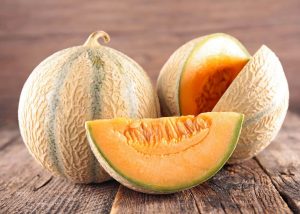23 Foods That Aid in Digestion and Gut Health

Good digestion and a healthy gut are essential for overall well-being. Your gut is responsible for breaking down food, absorbing nutrients, and supporting immune function. A thriving digestive system is also closely tied to mental health, energy levels, and the prevention of chronic diseases. By incorporating specific foods into your diet, you can promote gut health, enhance digestion, and prevent issues like bloating, constipation, and indigestion. These 23 foods are rich in fiber, probiotics, prebiotics, and essential nutrients that work synergistically to support a robust and balanced gut microbiome.
1. Yogurt
Yogurt is one of the best sources of probiotics, which are beneficial bacteria that support gut health. These probiotics help maintain a healthy balance of gut flora, improve digestion, and enhance the absorption of nutrients. Yogurt also contains calcium and protein, which contribute to overall health and help soothe the digestive system.
Enjoy yogurt as a snack, or add it to smoothies and breakfast bowls. Choose plain, unsweetened yogurt with live cultures for the maximum digestive benefits. For added variety, top it with fruits, nuts, or a drizzle of honey to create a delicious and nutrient-dense treat.
2. Kefir
Kefir is a fermented dairy product that contains an even wider variety of probiotics than yogurt. It helps improve gut health, enhance digestion, and reduce symptoms of lactose intolerance. The fermentation process also makes kefir easier to digest than regular milk, making it a great choice for those with sensitive stomachs.
Drink kefir on its own, or use it as a base for smoothies and salad dressings. For those avoiding dairy, non-dairy kefir options made from coconut or almond milk are also available. Incorporating kefir regularly into your diet can provide a powerful boost to your digestive and immune systems.
3. Sauerkraut
Sauerkraut, or fermented cabbage, is packed with probiotics and fiber that support gut health. The fermentation process increases its beneficial bacteria, which improve digestion and strengthen the gut lining. Sauerkraut is also rich in vitamin C and antioxidants, which contribute to overall immune support.
Add sauerkraut as a side dish, or use it as a topping for sandwiches and salads. Opt for raw, unpasteurized sauerkraut to ensure it contains live probiotics. Experiment with homemade sauerkraut to customize flavors and maximize freshness.
4. Kimchi
Kimchi, a traditional Korean fermented vegetable dish, is rich in probiotics, vitamins, and fiber. It supports digestion, promotes gut flora balance, and helps reduce inflammation in the gut. The spices in kimchi, such as garlic and chili peppers, also contribute antimicrobial properties that further benefit digestive health.
Use kimchi as a flavorful side dish, or incorporate it into rice bowls and soups for an extra digestive boost. Its tangy and spicy flavor makes it a versatile addition to a variety of meals.
5. Apples
Apples are a great source of soluble fiber, particularly pectin, which acts as a prebiotic. Pectin feeds the beneficial bacteria in your gut and helps improve stool consistency. Apples are also rich in antioxidants that protect the digestive system from oxidative stress.
Enjoy apples as a snack, add them to salads, or bake them for a gut-friendly dessert. Pair apples with nut butter for a satisfying snack that combines fiber and healthy fats to promote digestion.
6. Bananas
Bananas are gentle on the stomach and contain resistant starch, a type of prebiotic that supports healthy gut bacteria. They also help soothe digestive discomfort, restore electrolyte balance, and provide a quick source of energy.
Eat bananas on their own, blend them into smoothies, or slice them over oatmeal for a digestion-friendly addition to your diet. Overripe bananas are especially easy to digest and can be used in baking for added sweetness and nutritional benefits.
7. Ginger
Ginger is known for its ability to relieve nausea, bloating, and indigestion. It stimulates digestive enzymes, helps food move through the digestive tract, and reduces inflammation in the gut. Ginger also has antimicrobial properties that support a healthy gut environment.
Add fresh ginger to teas, soups, or stir-fries. Ginger juice mixed with honey can be a soothing remedy for an upset stomach. You can also use powdered ginger in baking or create refreshing ginger-infused beverages for variety.
8. Garlic
Garlic contains prebiotic fibers that feed beneficial gut bacteria and support a healthy microbiome. It also has antimicrobial properties that help keep harmful bacteria in check, promoting a balanced digestive system.
Use garlic as a base for cooking, or roast it for a milder, sweeter flavor. Incorporating garlic into soups, sauces, and marinades is an easy way to boost gut health. For an added kick, try black garlic, which has enhanced antioxidant properties and a unique flavor profile.
9. Whole Grains
Whole grains like oats, quinoa, and brown rice are rich in fiber, which aids digestion and supports regular bowel movements. They also contain prebiotic compounds that nourish beneficial gut bacteria, promoting a balanced microbiome.
Use whole grains as a base for meals, or incorporate them into breakfast bowls and baked goods for added digestive benefits. Try experimenting with less common grains, such as farro or barley, for additional variety and nutrients.
10. Leafy Greens
Leafy greens such as spinach, kale, and Swiss chard are high in fiber and nutrients that support digestive health. They also contain compounds that feed gut bacteria and promote the production of short-chain fatty acids, which benefit colon health and reduce inflammation.
Add leafy greens to salads, smoothies, or sautéed dishes for a nutrient-packed boost. For added convenience, use pre-washed salad mixes or frozen greens to ensure you always have a supply on hand.
11. Chia Seeds
Chia seeds are rich in soluble fiber, which helps regulate bowel movements and promotes the growth of beneficial gut bacteria. When soaked, they form a gel-like substance that soothes the digestive tract and aids in nutrient absorption.
Add chia seeds to yogurt, oatmeal, or smoothies, or use them to make chia pudding for a gut-friendly snack. You can also sprinkle them over salads or incorporate them into baked goods for added texture and nutrition.
12. Flaxseeds
Flaxseeds are an excellent source of both soluble and insoluble fiber, which support regular digestion and prevent constipation. They also contain omega-3 fatty acids that reduce gut inflammation and support overall health.
Sprinkle ground flaxseeds over cereals, salads, or smoothies, or incorporate them into baked goods for a digestive boost. Flaxseed oil is another option that can be drizzled over cooked vegetables or mixed into salad dressings.
13. Fermented Vegetables
Fermented vegetables like pickles and carrots are loaded with probiotics that improve gut health and aid digestion. They also contain fiber and enzymes that enhance nutrient absorption and support a healthy gut lining.
Include fermented vegetables as a side dish or snack, and choose varieties that are naturally fermented for the best results. Homemade fermented vegetables allow you to experiment with different flavors and combinations.
14. Bone Broth
Bone broth contains gelatin, which helps repair the gut lining and improve digestion. It also provides amino acids like glutamine, which support gut integrity and reduce inflammation. Bone broth is also rich in minerals that nourish the body and enhance overall health.
Sip on warm bone broth, or use it as a base for soups and stews to promote gut health. For added flavor and nutrients, simmer bone broth with herbs, garlic, and vegetables.
15. Papaya
Papaya contains papain, an enzyme that aids protein digestion and reduces bloating. It also has anti-inflammatory properties that soothe the digestive tract and promote regularity.
Enjoy fresh papaya as a snack, or add it to fruit salads and smoothies for a tropical digestive boost. Green papaya can also be used in savory dishes, such as salads or stews, for added versatility.
16. Pineapple
Pineapple contains bromelain, an enzyme that helps break down proteins and improve digestion. It also reduces inflammation in the gut and supports overall digestive function. Pineapple is also hydrating, which aids in maintaining healthy digestion.
Add fresh pineapple to smoothies, salsas, or desserts for a sweet and gut-friendly treat. Grilled pineapple can be paired with savory dishes for a unique flavor combination.
17. Almonds
Almonds are rich in fiber, magnesium, and healthy fats that support digestion and gut health. They also contain prebiotics that feed beneficial gut bacteria and promote a balanced microbiome.
Snack on almonds, or add them to oatmeal, yogurt, or salads for a crunchy and nutritious addition to your meals. Almond butter is another versatile option that can be spread on toast or blended into smoothies.
18. Beans
Beans are a great source of fiber and resistant starch, which promote regular bowel movements and feed beneficial gut bacteria. They also provide protein and essential nutrients for overall health, making them a staple in a digestion-friendly diet.
Add beans to soups, salads, or grain bowls for a hearty and digestion-friendly meal. For added variety, experiment with different types of beans, such as black beans, chickpeas, or lentils.
19. Cucumber
Cucumbers are hydrating and contain soluble fiber that supports digestion and prevents constipation. Their high water content helps flush toxins from the digestive system and keeps the body hydrated.
Slice cucumbers into salads, or add them to water for a refreshing digestive aid. For added flavor, try pickling cucumbers to enjoy as a tangy snack.
20. Fennel
Fennel has a natural ability to relieve bloating, gas, and indigestion. Its compounds relax the muscles of the digestive tract and stimulate the production of digestive enzymes, promoting smoother digestion.
Add fennel seeds to teas, or use fresh fennel in salads and soups for a flavorful digestive boost. Roasted fennel pairs well with proteins and can be a satisfying side dish.
21. Avocado
Avocados are rich in fiber and healthy fats that support digestion and nutrient absorption. They also help maintain a healthy gut lining, which is essential for optimal digestive function.
Add avocado slices to toast, salads, or smoothies for a creamy and digestion-friendly addition. Guacamole is another delicious way to enjoy the benefits of avocados.
22. Watermelon
Watermelon is hydrating and contains fiber that supports regular digestion. Its high water content helps prevent bloating and keeps the digestive system running smoothly. Watermelon also contains antioxidants that support gut health.
Enjoy watermelon as a refreshing snack, or blend it into smoothies for a hydrating digestive boost. For a unique twist, try adding watermelon to savory salads or making watermelon gazpacho.
23. Dark Chocolate
Dark chocolate with a high cocoa content contains polyphenols that act as prebiotics, feeding beneficial gut bacteria. It also has anti-inflammatory properties that support gut health and overall digestion.
Enjoy a small piece of dark chocolate as a treat, or add it to yogurt or smoothies for a rich and gut-friendly indulgence. Pairing dark chocolate with berries can enhance its health benefits and create a delicious dessert.
Conclusion
A healthy gut is the foundation of overall wellness, and incorporating these 23 digestion-friendly foods into your diet can make a significant difference. From fiber-rich fruits and vegetables to probiotic-packed fermented foods, these natural remedies support gut health, enhance digestion, and keep your digestive system running smoothly. By embracing these foods, you can improve nutrient absorption, reduce digestive discomfort, and promote long-term health. Start adding these nutrient-packed options to your meals today and enjoy the benefits of a thriving gut and a healthier you.


